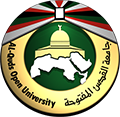Overview:
The development of internet has changed the form, process, and concept of traditional journalism; in today’s world, success of Journalism is connected with the success of the following two concepts, interactive journalism and comprehensive journalism.
In the light of interactive journalism, the citizen is able to contribute in producing the information and affect its flow without guidance or supervision. The citizen is no longer a mere consumer, he/she can be the source and the generator of information. For instance, the development of smartphones and cameras enables individuals to capture raw footages, and publish them online with any desired captions to later disseminate them through the means of social media. This has provided a powerful tool for citizens to influence the public opinion and steer new social movement. Consequently, major media corporations started following the trend. However, in more complex and regulated manner to produce a powerful message through the outlets of social media, to reach the largest possible number of people. As a result, Social Media became more powerful and influential than traditional media. For instance, a study showed that 60 % of Palestinian youth in the present obtain their information and news from the internet, surpassing the traditional media.
Thus, the regression in the role of traditional media and the increasing interest in digital media obliged major media corporations to use and invest in the digital realm to produce and disseminate their information flow. Consequently, Faculties of media are now also obligated to follow the current trend and develop academic programs in accordance with the latest developments to produce graduates who can work in any field of journalism, including social media and websites.
On the other hand, comprehensive journalism represents a new domain where journalists are able to, individually, write for all outlets of media, produce news and information in various forms, use latest technologies and techniques, film and montage videos for T.V, preform sound-engineer for radio channels, and produce suitable news for social media outlets and disseminate it through the internet.
Al-Quds Open University followed these concepts while developing its new academic major “New Media.” to produce qualified graduates who can work in all outlets of media and raise their competitiveness at regional and local labor market.
Major Outcomes:
- Graduates will be able to manage the websites of the private and public organizations and NGOs at a high level.
- Graduates will acquire the various forms of media skills and techniques to serve in the different media organizations.
- Graduates will have all writing skills needed for journalism.
- Graduates will be comprehensive journalists, able to work in the various fields of the media, and perform all required tasks.
Prospective Employment:
- Professional career at the news agencies as a journalist or a website manager.
- Professional career at the various media organizations as a journalist or a website manager.
- Managing the private and public organizations and NGOs websites.
- Digital media graduate is able to work as a reporter.
Training: (New Media specialization):
The Faculty of Media considers Training as a fundamental pillar of its teaching philosophy. It pays great attention to training programs. These programs are concerned with enhancing the competencies and skills of the students through conducting training courses that are complementary to the study plan or these programs that are conducted in the field.
For this purpose, the Faculty has completed several training courses outside and within the Faculty in cooperation with a number of partner organizations.
- A course in Digital Media and community accountability.
- Training on the Occupational Safety of journalists.
- The art of diction.
- A course on how to prepare investigative journalism.
- Training on "Public Opinion polls".
- News Writing.
- Make money through the web.
- The Production of short movie via smart phones.
As for the field training of students, the Faculty of Media held several agreements and Memorandums of Understanding with local media institutions in order to provide students with opportunities for field training in these institutions.
The training is not limited to graduates only as the Faculty of Media has also adopted a strategy to integrate students of the second year in the training process, within the Faculty and in partner organizations.
Among the partner organizations in training:
- Raya FM
- Al Hayat Al Jadida
- Watan TV and Television
- Palestinian Investigative Journalists Association
- 24 FM Radio.


